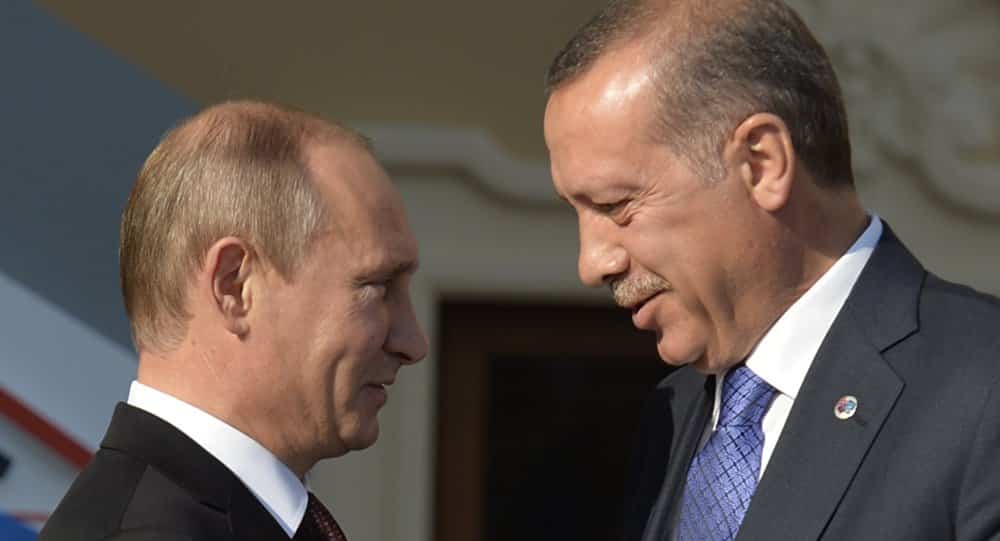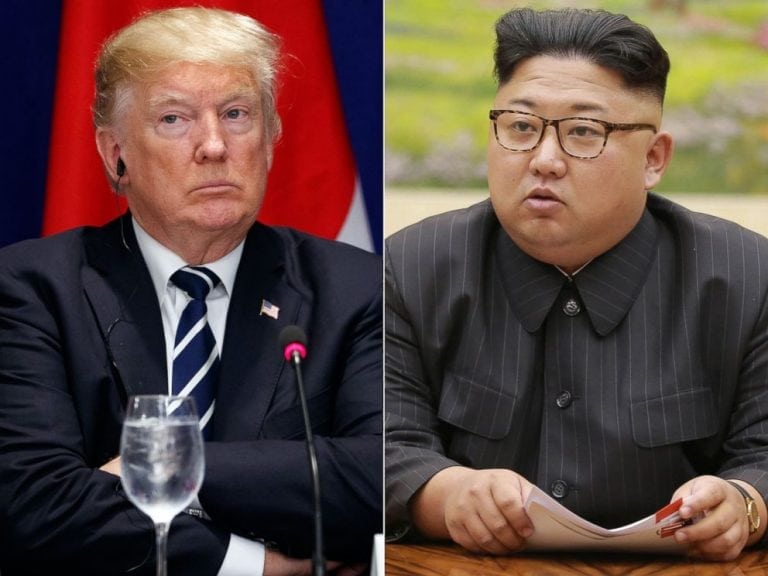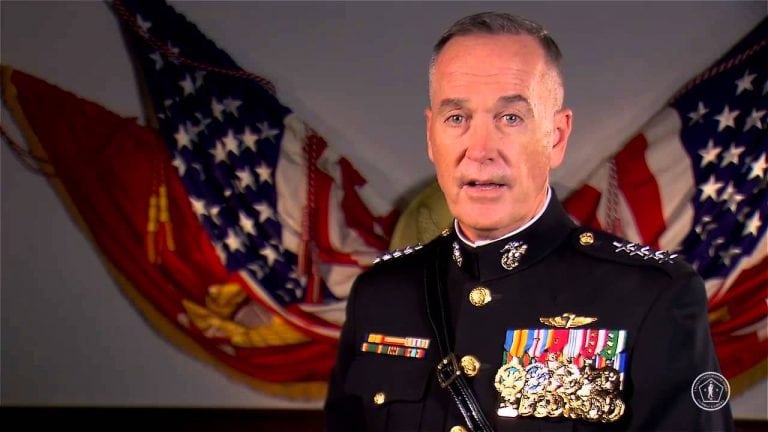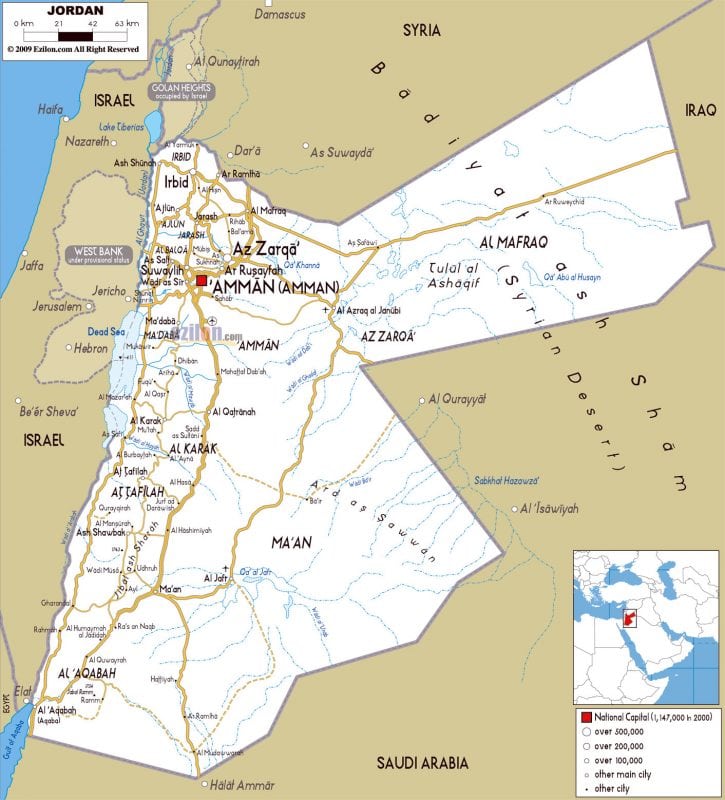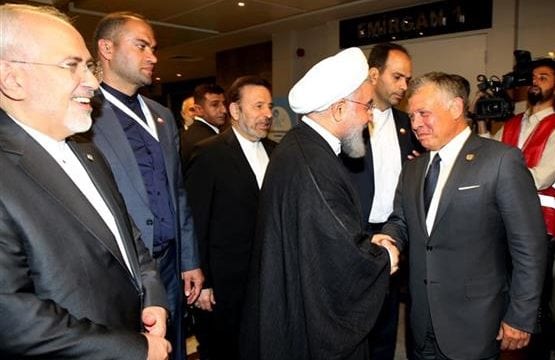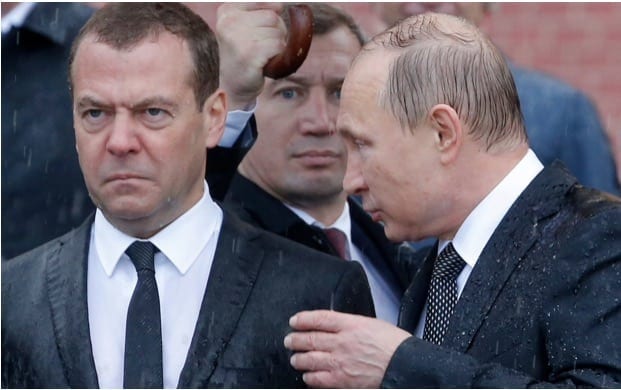6 US “Allies” That Are Russia’s Newest Partners
1. Turkey
For centuries, Russo-Turkish wars dominated the landscape of multiple global regions including Black Sea coasts and hinterlands as well as the Balkan region. But in the 1920s, the arrival of Ataturk and his Grand National Assembly of Turkey looked to establish healthy ties with the equally fledgling Soviet state.
Turkey was still in the midst of its own civil crisis when USSR founder Lenin and Republic of Turkey founder Ataturk signed an historic Friendship Treaty in Moscow which put to rest centuries of Russo-Turkish antagonism. Indeed, so friendly was Ataturk’s relationship with the USSR that when former World War era triumvir Enver Pasha attempted to lead a Turkic revolt against the USSR in central Asia, the so-called Basmachi movement, Ataturk continued to renounce Enver Pasha and maintained good ties with Moscow.
Yet however strong the friendship between Lenin’s USSR and Ataturk’s Turkey was in the 1920s, by the end of the 1930s relations showed signs of frost and by 1952, Turkey had joined NATO and become a close ally of the United States.
Against this background, it seems almost surreal that the shooting down of a Russian Sukhoi Su-24 in 2015 by “Turkish forces” would perversely be the gateway to a historic rapprochement. Indeed at the time, the downing of the Russian jet became the catalyst for a severe downgrading of relations. But by 2016, facts had begun to emerge that the order to shot at the plane came not from legitimate Turkish forces. Furthermore, it was found that those responsible for the downing were not legitimate Turkish soldiers. Instead, the Fethullah Terror Organisation (FETO) had ordered the attack in an attempt to destroy any possibility for future Russo-Turkish cooperation.
When in 2016, FETO agents in the armed forces set their sights not on Russia but on the legitimate government of Turkey, it was Russian intelligence that warned President Erdogan of the attempted coup which allowed him to re-group patriotic Turks who eventually saw off the FETO provocation.
Since then, Russia and Turkey have not only re-established healthy ties but have embarked on a uniquely meaningful partnership given the long history of hostility between the two nations which dates back to before the founding of the USA. This has been the case in spite of the brutal assassination of Russia’s Ambassador to Turkey Andrey Karlov by a FETO agent in late 2016.
Today, Russia is a major supplier of energy to Turkey while both countries work on the Turk Stream pipeline which will bring Russian gas into southern Europe. Likewise, Russia has begun construction on Turkey’s first ever nuclear power plant which will be on line in approximately two years.
In Syria, Turkey and Russia along with Iran work in the Astana format to bring a negotiated settlement to the conflict while both countries have resolved many of their initial differences over each side’s penultimate aim in the conflict. With Turkey insistent that it will complete its purchase of the Russian made S-400 missile defence system in spite of the threat of US sanctions as a consequence, officials in Ankara have suggested that if this means the US will renege on the deal to physically deliver F-35 fighter jets to Turkey, Russia’s Su-57 fifth generation fighters could be an attractive alternative.
As the US continues to needlessly antagonise Turkey on multiple fronts, Russia’s already healthy partnership with Turkey is set only to expand as Erdogan and Putin have developed a relationship based on trust, transparency and pragmatism which is more than can be said of Ankara’s current state of relations with Washington.
2. Israel
While Israel is often correctly described as America’s closest ally, the fact of the matter is that Russian relations with Tel Aviv are incredibly strong and growing stronger. In an age where Tel Aviv and its lobbyists abroad accuse multiple European societies of being antisemitic whilst even some political factions in the US are accused of the same, Russia is uniquely immune to this accusation. The fact of the matter is that while social cohesion in the US and Europe appears to be undermined due to a combination of radical liberalism, mass migration and economic decline, Russia’s historically multi-ethnic and multi-religious state continues to function without major incident. Russian and Israeli information conduits have not allowed this to go unnoticed.
But beyond this soft power victory for Russia in the eyes of Tel Aviv’s leaders, Russia has actively courted Israel on the basis of the fact that many Russian Jews now live there and also on the basis of Russia’s strategy of anti-ideological/anti-sectarian balancing of Middle Eastern interests.
While Russia remains partners with Syria, Palestine and Iran, Russia is equally a partner of Israel. Today, Moscow and Tel Aviv are on the same page regarding a withdrawal of Iranian and Hezbollah troops from Syria. While both sides reached this point of agreement in different ways and for different reasons, President Putin’s government has shown a willingness to work with any partner in the region on a case-by-case basis and Israel is no exception, not least because Vladimir Putin and Benjamin Netanyahu share a good personal relationship.
Furthermore, it must be noted that at a time when Russia and Israel continue to cooperate ever more economically and in terms of regional security dialogue – in spite of the fact that Israel is often more western in its mentality than most geographically western regimes, Tel Aviv has never joined the US, EU, Canada and Australia in anti-Russian sanctions nor in accusing Russia of playing a negative role in the world. Instead, Tel Aviv has officially adopted the 9th of May as a celebration of the Soviet and allied victory over fascism in 1945 at a time when western leaders shamefully boycott events commemorating the victory against Hitler’s fascist empire.
Before one thinks that this partnership has come at the expense of Russia’s older Syrian ally, one must forgo such zero-sum dogmas and look objectively at what the Russo-Israeli partnership has accomplished for Syria. Russian diplomats have persuaded Tel Aviv to agree to tacitly accept the legitimacy of the Arab Nationalist Syrian President Bashar al-Assad so long as Russia helps to facilitate an orderly Iranian and Hezbollah withdrawal from the Arab Republic. While this agreement is a compromise on both sides (as one could expect), one must realise that after decades of trying to undermine Ba’athist Syria, because of Russia and only because of Russia, Israel is now in a position to agree to cease attacking its Syrian foe for the fist time in decades. Such an agreement could scarcely have been struck by any other mediator. In the fraught context of the Middle East, this is as close to a win-win as one could hope for and moreover, it is one that could preserve Syria’s government which after all was the primary objective of Damascus in defending against a multilateral hybrid war against its sovereignty that has raged since 2011.
3. Saudi Arabia
Saudi Arabia remains America’s closest ally in the Arab world but under the de-facto leadership of Crown Prince Muhammad bin Salman, Riyadh is rapidly engaging in attempts to expand the petro-Kingdom’s geo-economic portfolio. This has resulted in excellent relations with both China and Russia.
Rather than working against Saudi Arabia in a race to the bottom in respect of energy prices, in 2016 Moscow decided to begin working with Saudi Arabia to stabilise oil prices in a highly competitive global market. The result has been the formation of the OPEC+ format where Russia and Saudi Arabia are now the de-facto trendsetters in the global price of oil. As Russia’s economy is more diverse than that of Saudi Arabia, Russia is in effect the king-maker in the OPEC+ format that Riyadh is keen to formalise in a would-be “Super-OPEC” cartel.
Additionally, Saudi Arabia has courted Russian expertise in the services of developing the new mega-city NEOM, while Riyadh is simultaneously working with Russia on deals that would see Russian companies build Saudi Arabia’s first nuclear power station. Additionally, Riyadh continues to express interest in the purchase of Russia’s S-400 missile systems.
In the 1970s, OPEC’s ability to manipulate the price of oil could bring down major economies and likewise, OPEC’s cooperation could ease economic tensions. Today, a similar power is jointly in the hands of Saudi Arabia and its Russian superpower partner. In spite of Washington’s close ties with multiple Saudi officials – the era of Muhammad bin Salman is also the dawning of a golden era in Russo-Saudi relations.
4. Pakistan
Pakistan’s close relationship with the United States has never been an easy one. In 1977, the US backed General Muhammad Zia-ul-Haq led a coup against the democratically elected Prime Minister Zulfikar Ali Bhutto, thus ushering in a 1980s decade that Pakistanis remain divided about in terms of Zia’s legacy to the country. In 1999, a similar anti-democratic coup took place when General Pervez Musharraf took power.
The recent Musharraf era remains a major talking point in this year’s Pakistani General Election as the surging PTI opposition party in particular has highlighted the grave suffering that Pakistanis have endured due to Musharraf’s unwavering support for George W. Bush’s so-called “war on terror”.
While Pakistan exposed itself to multiple terrorist attacks during the course of America’s ongoing struggle to subdue Afghanistan, today under Donald Trump, rather than thanking Pakistan for doing everything Washington said during the “war on terror”, Trump has instead cut over $200 billion worth of funds to Pakistan and has worked to “greylist” Islamabad through the Financial Action Task Force (FATF).
Throughout this process, Pakistan has intensified its always strong relationship with China. The Sino-Pakistan partnership looks to elevate the material condition of the Pakistani people while helping to provide sustainable models for internal development that the US never bothered to offer even during the Bush-Musharraf years.
But while Pakistan’s very visible partnership with China continues to dominate headlines, Pakistan is simultaneously engaged in a new positive relationship with Russia. Below is a lengthy discussion from geopolitical expert Andrew Korybko charting the evolution of Russo-Pakistan relations in the modern era.
As a strategically located south Asia power that now increasingly shares similar goals to Moscow in respect of Afghanistan, it was inevitable that an impetus for more intensified positive relations would develop. With Moscow’s seemingly ‘long gone’ Soviet era partner India rapidly becoming America’s key partner in a wider anti-China campaign in the region, Russia now has all the more incentive to expand its relations with Pakistan.
5. South Korea
Unlike Turkey and Pakistan but very much like Saudi Arabia and Israel, South Korea retains very healthy relations with the United States. However, the economic realities of the 21st century have seen the Trump administration accuse South Korea of “dumping” goods on US shores while Washington’s tariff barrage has not been any friendlier to South Korea than it has to traditional Asian rivals of the United States. With Seoul making a formal complaint to the World Trade Organisation regarding Trump’s protectionist onslaught, the north east Asian industrial powerhouse is looking for and rapidly attaining new export markets including both China and Russia.
South Korea was the first country to embrace Russian President Putin’s proposals for tripartite economic cooperation between the two Korean states and Russia. This proposal was made in the autumn of 2017 during the nadir of the US-DPRK nuclear war of words. Nevertheless, South Korean President Moon Jae-in remained fully supportive of Putin’s proposals.
Less than a year later and Russia is already in talks with South Korea to help construct modern road, rail and gas pipeline links between Russian territory and South Korea via the DPRK. Russia’s role in the Korean peace process has been vital and President Moon’s recent endorsement of the future Russia-Korean Economic Corridor during his recent trip to Moscow confirms that so far as Seoul is concerned, a new era of peace through prosperity on the Korean peninsula requires vital Russian participation which President Putin has been happy to offer. For Moscow and Seoul peace and prosperity are indelibly linked, while Russia’s historically good relations with Pyongyang are seen as beneficial to a new reality wherein Moscow’s relations with Seoul are likewise exceptionally strong.
6. The Philippines
The election of Philippine President Rodrigo Duterte in 2016 was a watershed in Manila’s relations with the wider world. Upon winning the election, Duterte forsook what he called “the colonial mentality” and warmly embraced new partnerships with China and Russia. Duterte has praised Russia’s forthright dealings with The Philippines over security issues. Indeed, Duterte was meeting with President Putin in 2017 when the Daesh aligned Maute group laid siege to the Mindanao city of Marawi.
Understanding Duterte’s sense of urgency, Russia offered The Philippines free arms shipments to help the country to better fight terrorism and maintain social order. Duterte’s 2017 trip to Moscow was crucial for helping to establish a new era of Russo-Philippine relations that can and should lead to a free trade agreement between ASEAN member The Philippines and the de-facto Russian led Eurasian Economic Union.
While the two countries do not have a long history of relations, Russia has proved it is a reliable multipolar partner for Duterte’s manifold war on Takfiri terrorism, political extremist terrorism and narco-terrorism.
Conclusion
Russia’s ability to build new partnerships is objectively an impressive diplomatic feat. Crucially though, it must be remembered that during this same period, Russia has remained close to traditional Cold War allies while mending fences with partnerships that were lost in the midst of or just after the Cold War. Russia is a country that is a partner with both Vietnam and China, Egypt and Turkey, Syria, Israel and Palestine, Iran and Saudi Arabia, Pakistan and to a more limited degree than in the Cold War, with India, The Philippines and Cambodia, Mozambique and South Africa and many others.
In short, Russia’s new partnerships have not come at the expense of traditional ones unless such a partner has already sought to re-align itself in the 21st century (India for example). In this sense, Russia has not actively pushed any partner away but has worked intensely on building new win-win partnerships across unlikely corridors of an ever more interconnected world.

This work is licensed under a Creative Commons Attribution-NonCommercial 4.0 International License
Things to ponder
While our media prostitutes, many Hollywood celebs, and politicians and opinion shapers make so much noise about the still to be demonstrated damage done by the Russkies to our nonexistent democracy, this is what the sanctimonious US government has done overseas just since the close of World War 2. And this is what we know about. Many other misdeeds are yet to be revealed or documented.
Parting shot—a word from the editors
The Best Definition of Donald Trump We Have Found
 In his zeal to prove to his antagonists in the War Party that he is as bloodthirsty as their champion, Hillary Clinton, and more manly than Barack Obama, Trump seems to have gone “play-crazy” — acting like an unpredictable maniac in order to terrorize the Russians into forcing some kind of dramatic concessions from their Syrian allies, or risk Armageddon.However, the “play-crazy” gambit can only work when the leader is, in real life, a disciplined and intelligent actor, who knows precisely what actual boundaries must not be crossed. That ain’t Donald Trump — a pitifully shallow and ill-disciplined man, emotionally handicapped by obscene privilege and cognitively crippled by white American chauvinism. By pushing Trump into a corner and demanding that he display his most bellicose self, or be ceaselessly mocked as a “puppet” and minion of Russia, a lesser power, the War Party and its media and clandestine services have created a perfect storm of mayhem that may consume us all.— Glen Ford, Editor in Chief, Black Agenda Report
In his zeal to prove to his antagonists in the War Party that he is as bloodthirsty as their champion, Hillary Clinton, and more manly than Barack Obama, Trump seems to have gone “play-crazy” — acting like an unpredictable maniac in order to terrorize the Russians into forcing some kind of dramatic concessions from their Syrian allies, or risk Armageddon.However, the “play-crazy” gambit can only work when the leader is, in real life, a disciplined and intelligent actor, who knows precisely what actual boundaries must not be crossed. That ain’t Donald Trump — a pitifully shallow and ill-disciplined man, emotionally handicapped by obscene privilege and cognitively crippled by white American chauvinism. By pushing Trump into a corner and demanding that he display his most bellicose self, or be ceaselessly mocked as a “puppet” and minion of Russia, a lesser power, the War Party and its media and clandestine services have created a perfect storm of mayhem that may consume us all.— Glen Ford, Editor in Chief, Black Agenda Report
[premium_newsticker id=”211406″]

